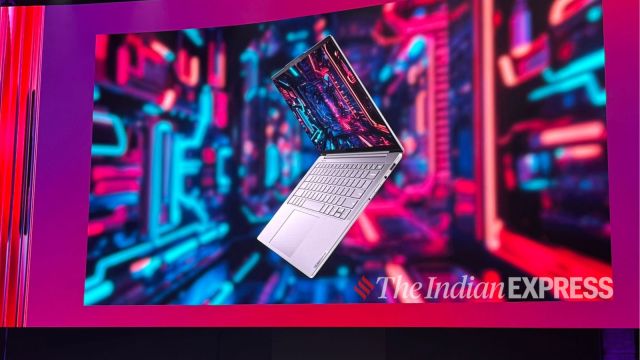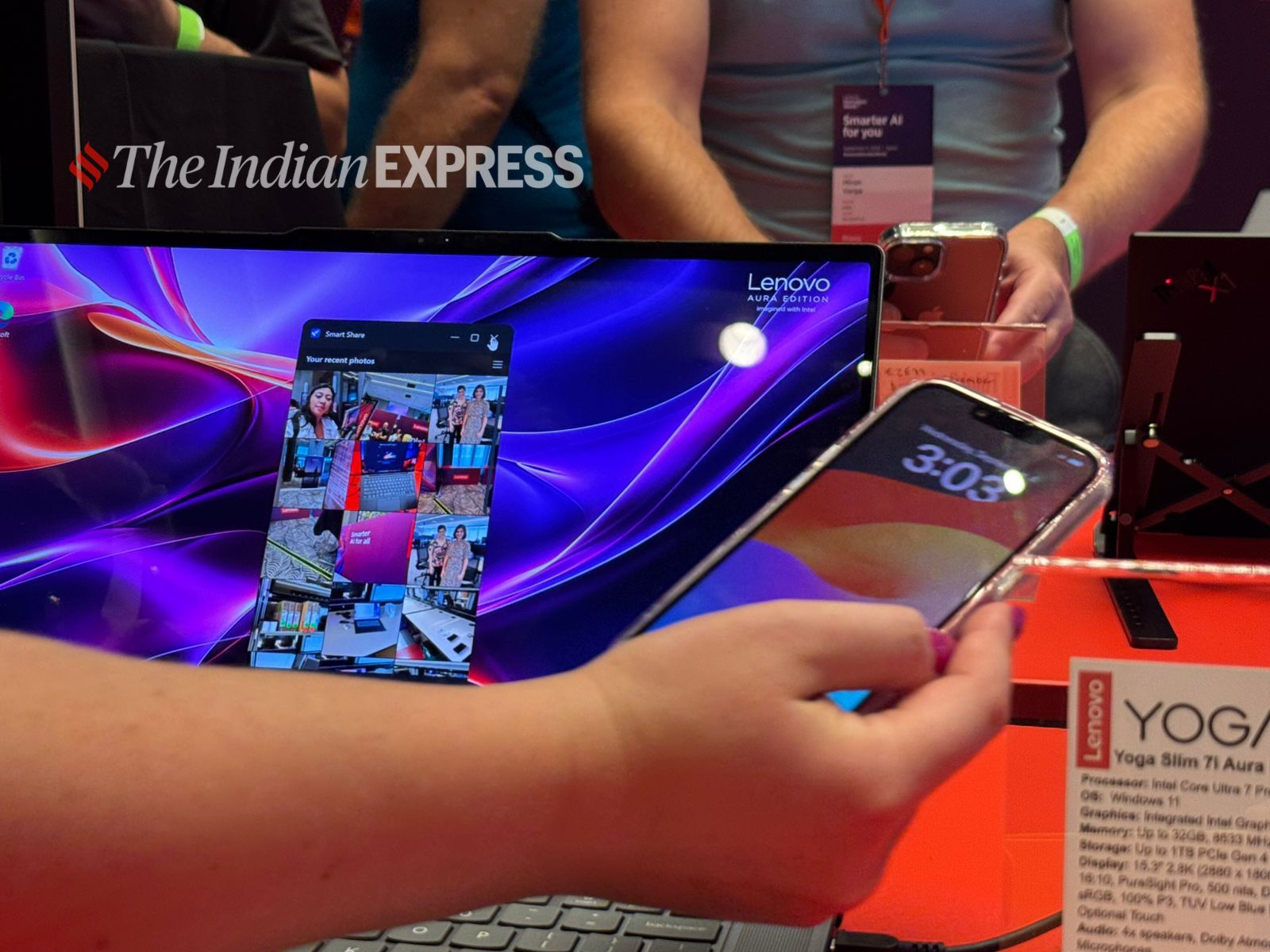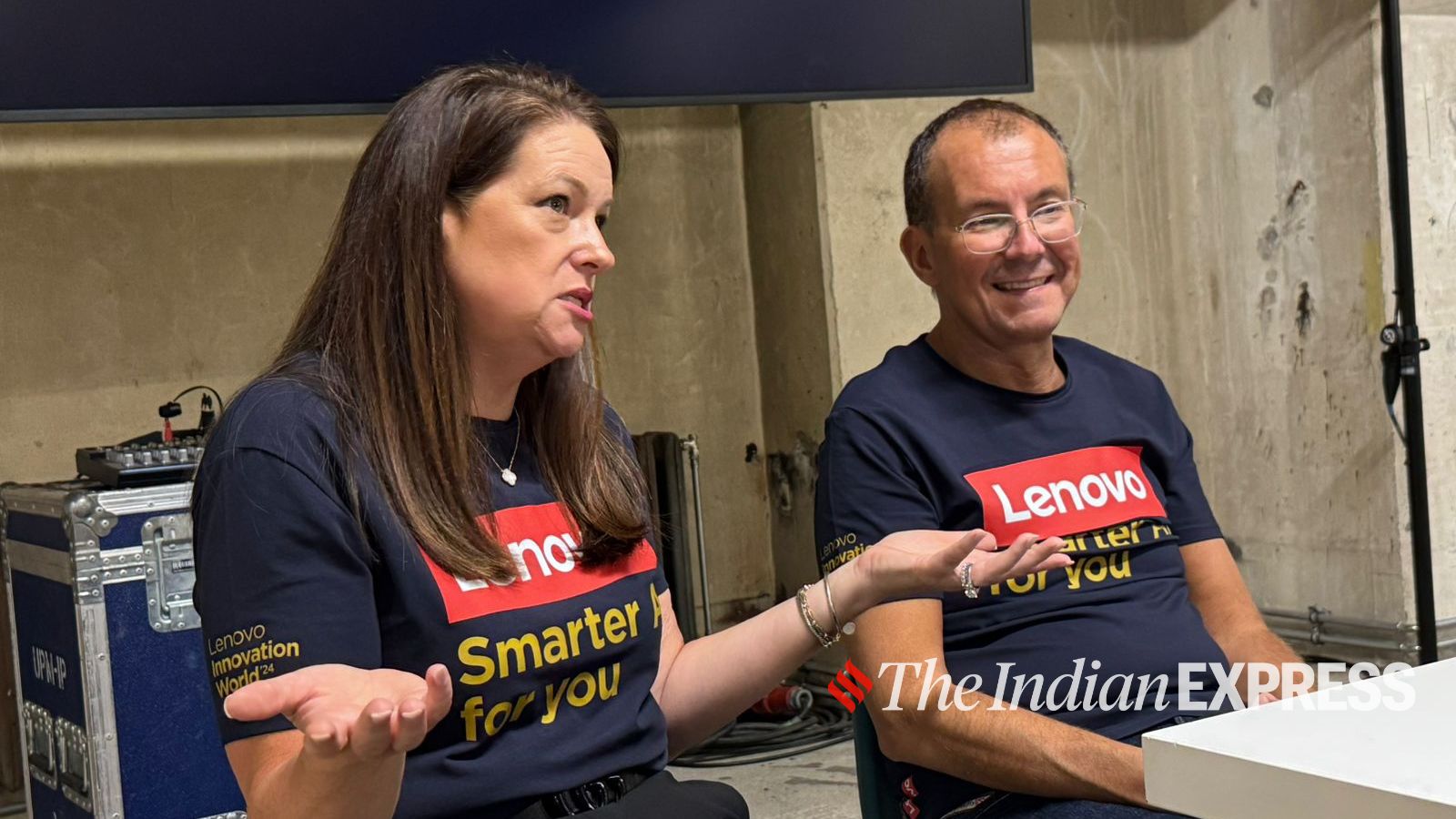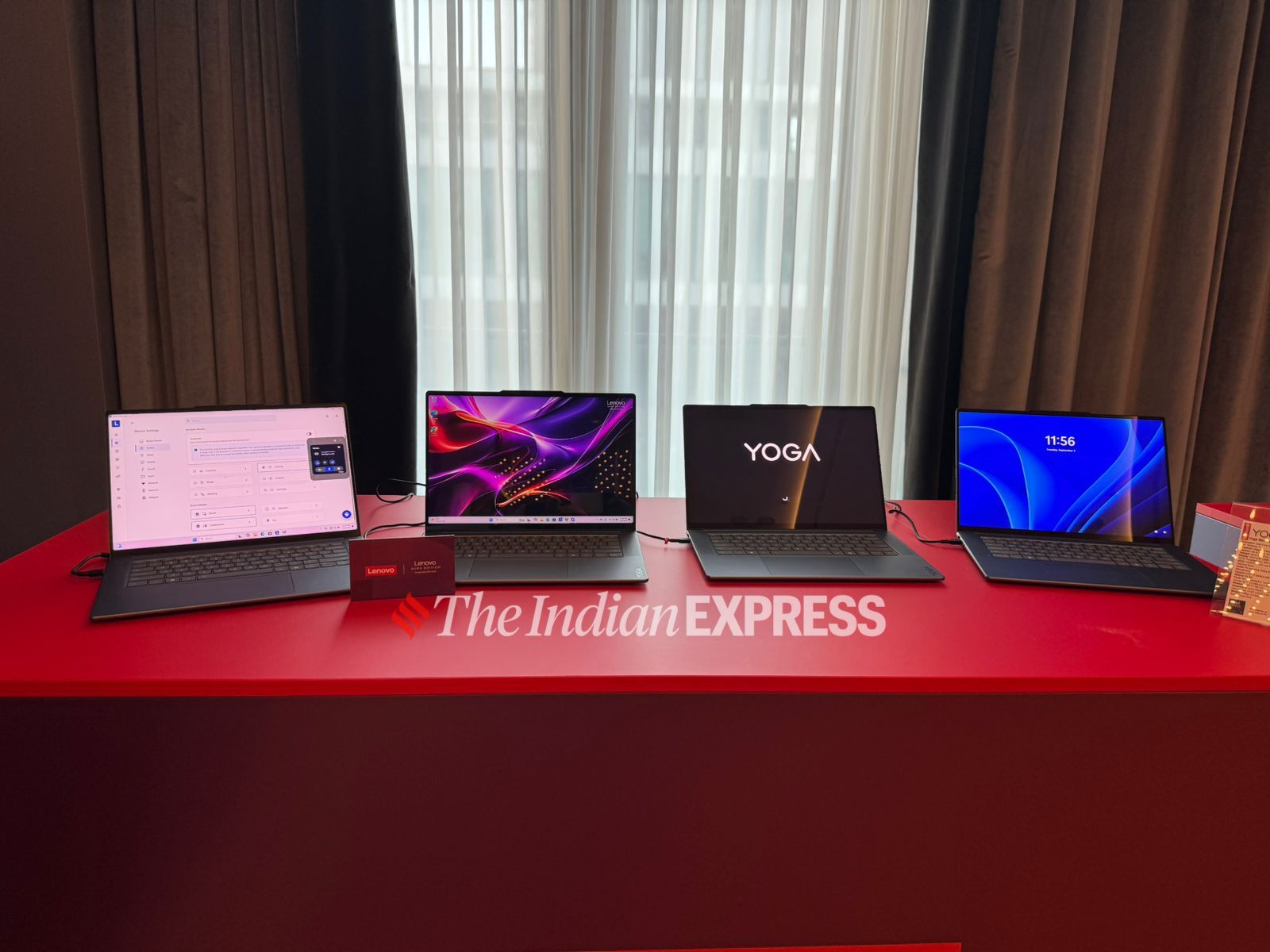Lenovo, the world’s largest maker of personal computers by volume, is looking to artificial intelligence to breathe new life into the personal computer market in India, as the company hopes that the new AI PCs will provide a much-needed boost to the device’s sales in the world’s most populous country.
“India is a very important market, a huge opportunity, but it’s under-penetrated compared to other markets. With AI PCs, we are confident they will trigger replacement cycles, and in a place like India, they will also expand the total market,” Luca Rossi, Executive Vice President and President, Intelligent Devices Group, told indianexpress.com during a roundtable with Asian media on the sidelines of IFA Berlin.

Lenovo is going all-in on artificial intelligence-first PCs as part of its broader strategy to increase market share and control the vital high ground of AI. During the Internationale Funkausstellung Berlin, Europe’s biggest and the world’s oldest consumer technology show, Lenovo showcased a fresh lineup of laptops across the ThinkBook, IdeaPad, ThinkPad, and Yoga series, powered by chips from Intel, Qualcomm, and AMD.
 ‘Smart Share’ lets you send pictures by simply tapping your phone against it. This feature is exclusive to Lenovo’s ‘Aura Edition’ laptops powered by Intel. (Image: Anuj Bhatia/The Indian Express)
‘Smart Share’ lets you send pictures by simply tapping your phone against it. This feature is exclusive to Lenovo’s ‘Aura Edition’ laptops powered by Intel. (Image: Anuj Bhatia/The Indian Express)
Some of these include special software features and tricks like ‘Smart Share,’ which allows you to tap an iPhone or Android device to your laptop to share photos. These features are part of Lenovo’s premium ‘Aura’ laptops, developed exclusively in collaboration with Intel. Lenovo is also focusing on lowering the price of AI PCs with Snapdragon X Plus 8-core laptops.
“In the first wave, you cannot buy an AI PC for less than $1,000, but over time, you will likely see it move into the $700 to $1,000 price range. I don’t anticipate it reaching the $500 level in the next 12 to 18 months, but a $699-plus price point will make it more affordable for many people, and they will buy it,” Rossi said.
 Michelle Johnston Holthous, executive vice president and general manager Client Computing group (left) with Luca Rossi, executive vice president and president, Intelligent Devices Group (right). (Image: Anuj Bhatia/ The Indian Express)
Michelle Johnston Holthous, executive vice president and general manager Client Computing group (left) with Luca Rossi, executive vice president and president, Intelligent Devices Group (right). (Image: Anuj Bhatia/ The Indian Express)
However, he argued that if a PC costs $100 more and adds value while delivering the right experience, consumers are likely to spend the extra money rather than save it.
Aiming high
Lenovo’s big push into AI, like that of its industry peers, could spark an upgrade cycle, with AI PCs requiring specific power to execute AI tasks. The chips powering these computers claim to deliver both performance and long battery life, along with an NPU that will support Copilot Plus. This means there remains a substantial difference in processing power between regular PCs and AI PCs.
Story continues below this ad
 Lenovo said its latest AI PC portfolio boasts new processors from Intel, Qualcomm, and AMD. (Image: Anuj Bhatia/The Indian Express)
Lenovo said its latest AI PC portfolio boasts new processors from Intel, Qualcomm, and AMD. (Image: Anuj Bhatia/The Indian Express)
When asked about the growth of AI PCs, Rossi said, “We are in a moment similar to when mobile phones became smartphones. We haven’t seen it yet, but 20 years ago, no one anticipated the shift from feature phones to smartphones and the acceleration that followed”.
While the market buzz for the new type of Windows personal computers, dubbed ‘AI PCs,’ remains high, the industry has yet to identify a ‘killer app’ that would make AI PCs essential productivity tools. Aside from personal assistants and the ability to automate some tasks, AI PCs currently lack the use cases that drive sales and give this industry the major boost it needs amid the ongoing slump.
The software heavy lifting is currently done by Microsoft through its flagship Windows operating system and third-party developers. However, Rossi acknowledged the need for PC vendors like Lenovo to step up and enhance their software offerings. “PC makers need to develop a new muscle in software, especially now for AI and creating new experiences. We have to invest heavily in this space,” he said, adding that Lenovo has hired hundreds of software engineers to develop ‘Aura’ and the experiences that come with the company’s AI PCs.
The market for AI PCs is expected to grow, with estimates from International Data Corporation (IDC) suggesting that these devices could account for 60 per cent of all shipments by 2027. Lenovo clearly has ambitions to be a leading player in this space and will play a key role in shaping the future direction of AI.
Story continues below this ad
However, it will also need the support of the industry and its partners. “The industry has been hyper-competitive for the past 40 years, and I think it will continue to be competitive. There is no solution around that, but the recent technological evolution provides OEMs with an opportunity to focus more on innovation in software, large language models, and advancements in the AI front,” he said.
(The writer is in Berlin attending IFA 2024 at the invitation of Lenovo)



 ‘Smart Share’ lets you send pictures by simply tapping your phone against it. This feature is exclusive to Lenovo’s ‘Aura Edition’ laptops powered by Intel. (Image: Anuj Bhatia/The Indian Express)
‘Smart Share’ lets you send pictures by simply tapping your phone against it. This feature is exclusive to Lenovo’s ‘Aura Edition’ laptops powered by Intel. (Image: Anuj Bhatia/The Indian Express) Michelle Johnston Holthous, executive vice president and general manager Client Computing group (left) with Luca Rossi, executive vice president and president, Intelligent Devices Group (right). (Image: Anuj Bhatia/ The
Michelle Johnston Holthous, executive vice president and general manager Client Computing group (left) with Luca Rossi, executive vice president and president, Intelligent Devices Group (right). (Image: Anuj Bhatia/ The  Lenovo said its latest AI PC portfolio boasts new processors from Intel, Qualcomm, and AMD. (Image: Anuj Bhatia/The Indian Express)
Lenovo said its latest AI PC portfolio boasts new processors from Intel, Qualcomm, and AMD. (Image: Anuj Bhatia/The Indian Express)





